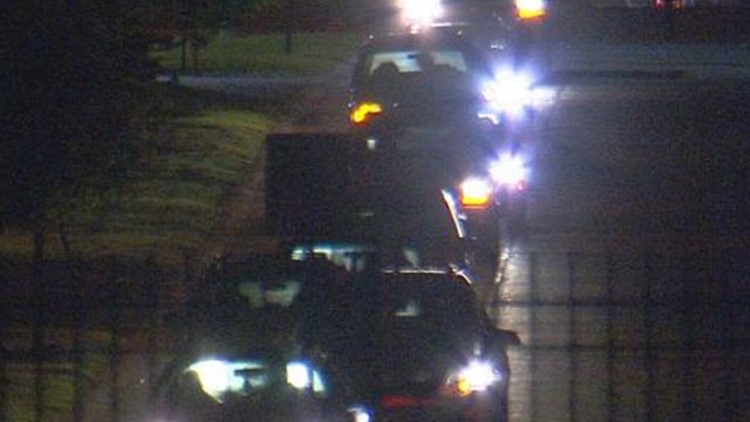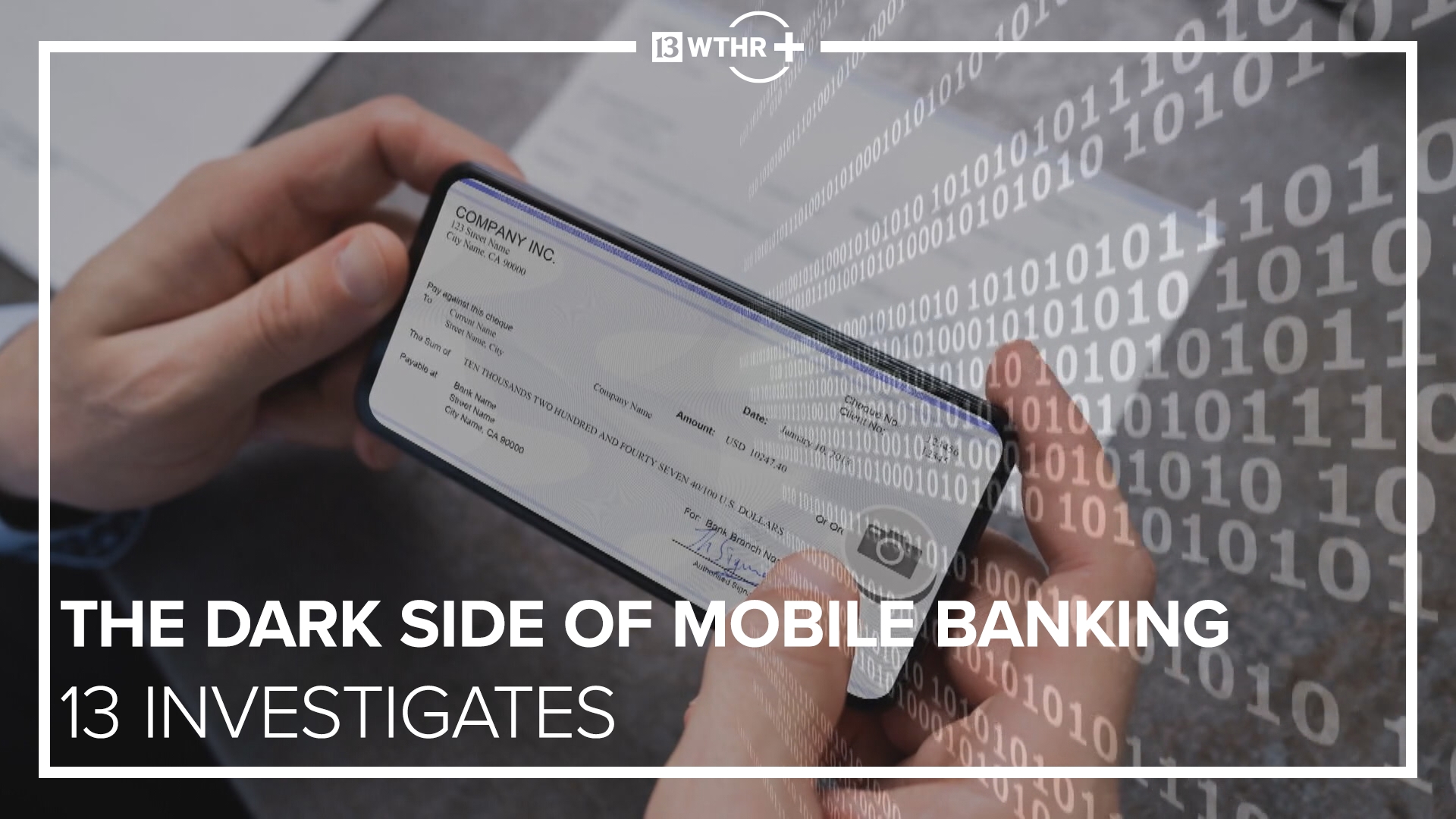Indiana has a problem.
More young adults are dying of drug overdoses from heroin and pain killers than car accidents. Indiana ranks 15th in the nation.
State lawmakers now plan to open new methadone clinics to help deal with the addiction epidemic. As the dosing sites are chosen, 13 Investigates has found medications used for recovery could pose yet another deadly risk. It's an inside look into methadone treatment and why critics say it trades one addiction for another.
Indiana dosing centers
In the darkness, a procession near Keystone Avenue. It's not a funeral but a pre-dawn rush before the workday. Some have come hours across state and county lines to get in line for what's waiting inside.
"They're coming from all over," explained Chad Mitchell of Indianapolis. "They're waiting to get dosed," he told 13 Investigates.
Dosed, with drugs like methadone, Suboxone or Subutex. The medications take the edge off withdrawal symptoms from addictions to opioid drugs like heroin and prescription pain killers - addictions now in the glaring light of a statewide epidemic.
"It's either do your heroin or come and get help," said Mitchell, explaining the choices. "It's $420 a month," he added.
Our hidden camera ventures inside the Indianapolis Clinic where it is standing room only in a public lobby. Mothers with their children. Young and older men all waiting in line.
According to the State of Indiana, a record 15,500 people sought addiction treatment at methadone clinics last year. More than half (58%) of them were between 18 and 34 years old, with 44% women compared to just 20% women a decade ago.
"I was in a motorcycle accident. Then I got hooked to the pain pills," Mitchell disclosed.
There are no centers on the west side of town, so he's been lining up at the Indianapolis Center for nearly a year, driving 20 miles each way for daily doses until a string of clean drug tests earned him the right to take home a week's supply of meds..
"You don't get high off this stuff. You don't get high," he insisted.
But patients do get addicted, raising questions about how well methadone works. That's the debate as the state of Indiana lifts its ban on new methadone clinics for the first time in eight years.
Since 2007, Indiana has had just 13 dosing sites from Gary to Evansville - most of them profit-making businesses. A new state law calls for adding five more for a total of 18, but only if they're affiliated with a hospital or health center.
Still, 13 Investigates has discovered a deep divide from the Statehouse to the dosing line over the effectiveness of treating drug addiction with medication.
Some say methadone clinics are snatching addicts from the grave, while others charge the state is merely trading one addiction for a deadly alternative.
Controversial treatment
"It's cheap and it works! But it's dangerous and it kills," said Dr. Dick Huber of Greenwood. He understands medicine. He's a retired family physician whose work is now more personal.
"I usually show them a picture of Kyle," he said, describing how he spends time warning others about substance abuse. His son Kyle died three years ago, in part from methadone toxicity.
Simply put, Kyle unintentionally overdosed on the medication prescribed to treat his addiction to pain killers.
Dr. Huber says Kyle was dosing at methadone clinics for four or five years with no plan of being weaned off that drug. Instead, Huber says the for-profit clinics simply cashed in.
Read more 13 investigates stories here.
“He had expressed several times to me that he wished he could get off the methadone,” revealed Dr. Huber.
But that's the problem. Because addiction is so personal and the level of impact varies, the success rate of methadone treatment is extremely low. How low?
"Only about 2 to 2.5%," said Indiana Senator Pat Miller (R-Indianapolis) Miller is a nurse and chairs the State Health Services and Provider Committee in the Indiana State Senate.
"Methadone keeps people on drugs," Miller said emphatically.
Despite the low success rate, addiction recovery advocates believe it's time to put clinics in the under-served areas of the state.
"It takes a lifetime of recovery," explained Kevin Moore, State Director of the Division of Mental Health and Addiction. His agency audits addiction programs.
"The goal for recovery is less use over time leading to abstinence, leading to no more drug use," Moore told 13 Investigates.
"I want the facilities to have an incentive to wean people off of methadone. As opposed to keeping them addicted; keeping them coming in day after day, or week after week or year after year," countered Senator Miller.
In 2013, The Indiana Department of Health reported 29 deaths from methadone overdose. (The latest numbers available) And methadone toxicity is a contributing cause in an unknown number of cases.
"That's why it's critically important the physician prescribing is following all of the protocols related to testing," said Moore.
Despite the explanations, Dr. Huber says he's seen enough.
"When you see so many patients lined up to get in, just so eager to get in, pleading you know," Huber said with astonishment. "If we step back and take a look at the total picture I really think we would say the State of Indiana would be much better if we didn't have methadone or any methadone clinics, period," he said.
Worth the Risk?
Outside the Indianapolis clinic, the viewpoint is quite different.
"The methadone clinic has absolutely saved our life," said 23-year old Sara May of Indianapolis. "Yes!! Most definitely," chimed in Honda May.
The Mays don't like talk of shutting down methadone clinics.
"I think we would probably be in prison or somewhere else now if we hadn't started the clinic, honestly," Sara told 13 Investigates.
The mother-daughter duo are on their second stint trying to beat heroin-like addictions.
"You can get it so easily now that a lot of people are turning to it. And a lot of people need help getting off of it," said Sara.
They came back to the Indianapolis clinic determined not to end up like friends and neighbors, who died getting high. Between the two of them, four of their friends have overdosed.
The women also have another incentive. Two other family members are battling addiction, including Honda's mother. That means a mother, daughter and granddaughter all now dosing.
"It's sad," said Sen. Miller. "I mean, it breaks your heart to see that kind of thing and I want to have a public policy that helps them. I don't want a public policy that prolongs the addiction," she added.
Read more 13 investigates stories here.
Honda and her family say they're getting adequate counseling and believe their reliance upon methadone will subside.
"You get to a certain level, you get leveled out. You get to where you can deal with life and then you start coming down. You just don't get to come in and dose and then do what you want. You have to want a clean living," said Honda, defending the treatment.
Outside the busy clinic, cars, trucks and even a semi pulls in. The occupants hurry inside to stake their claim in line.
13 Investigates in approached by an administrator.
"So how many people do you see a day?" questioned 13 Investigates.
"I'm not going to talk to you right now, you need to put in a time to our corporate office," the staffer responded.
Despite repeated efforts tor each out, no one from the Indianapolis clinic wanted to talk with us about the business of dosing.
In the coming year, more data gathered by the state will help determine the future of methadone clinics in Indiana.
"Would you say more lives are being saved through these clinics as opposed to the addiction and the risk?," 13 Investigates asked Kevin Moore, the State Director in charge of auditing the clinics.
"(We) never want to be over a program that's causing more harm than good," Moore responded. "If we believed this program was harming people, that it was dangerous -- it's not something we would want to support," Moore said.
Other alternatives limited
Experts say (Buprenorphine) Suboxone is a better alternative than methadone in treating addictions to pain killers. The problem is Indiana has just 240 doctors certified to prescribe it. And the doctors who are certified are limited to 100 patients at a time.
The State Director for Mental Health & Addiction said there are no state dollars going to support the treatment centers, although community health centers do get some federal grants.
Prescription drug abuse: Strategies to stop the epidemic



